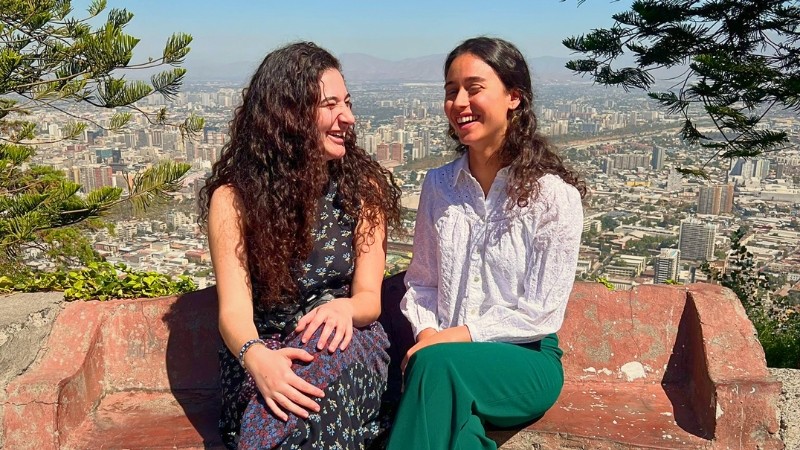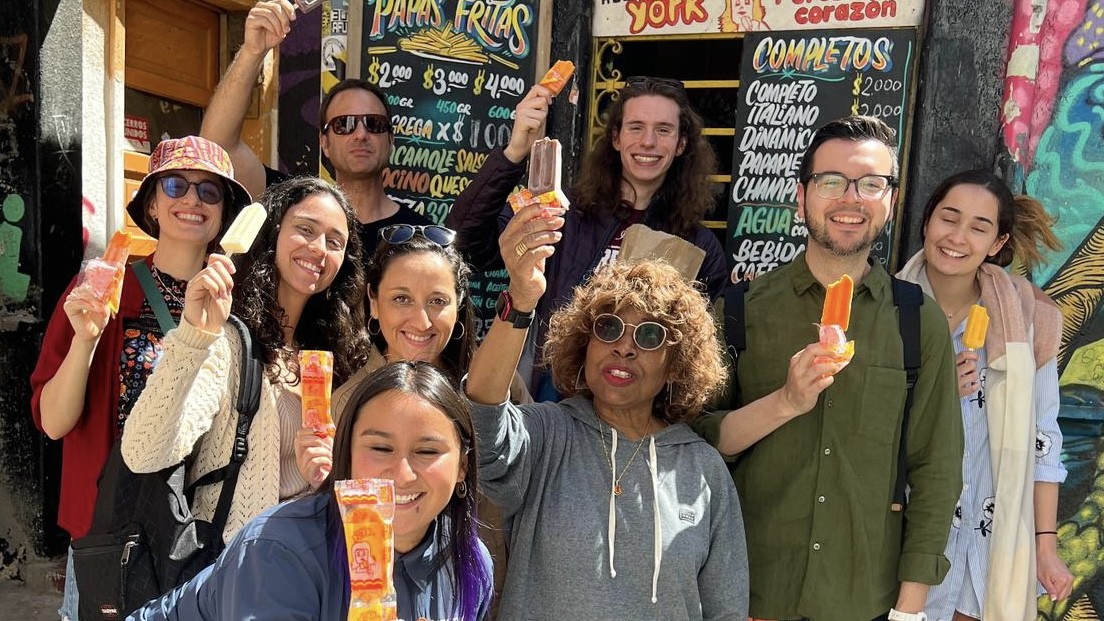Kraft Fellows Stories: Mi Casa Es Su Casa
Ines Jabri tells of her experience exploring Chile through the lenses of culture and religion.

The Columbia Global Center in Santiago asked members of the Kraft Global Fellows Program to share reflections on their experience in visiting Chile under an interfaith and inter-cultural exchange trip led by the University Chaplain's Office.
The following is the personal account of Ines Jabri, a junior majoring in Financial Economics in the Dual BA Program between Columbia University and Sciences Po Paris.
As a young Muslim woman born and raised in Morocco, I grew up embracing the values of intercultural and interfaith awareness among the three monotheistic religions that are at the crossroads of Moroccan civilization. Therefore, when I learned about the launch of the Kraft Global Fellowship Program in Santiago, I immediately thought that exploring a completely unfamiliar country through the lenses of culture and religion would be the best way to understand its local customs, traditions, rich historical background, and enriching societal organization. And little did I know, when leaving Columbia University’s campus on a cloudy 6th of March in New York to go to the airport with five young adults, nearly strangers, I would be embarking on one of the most rewarding experiences of my life.
During this trip, the leitmotif was to engage with the interfaith nature of Chile alongside a cohort of diverse peers from various religious backgrounds and cultures, as well as learn from each other’s lineages. In this sense, we had the unique opportunity to undertake several religious and cultural activities, such as attending a Catholic Mass at Nuestra Señora de La Victoria, visiting the Mosque As-Salam, and attending the Shabbat service of the Jewish Community of Chile at the Israeli Circle of Santiago. We also discovered an array of traditions my peers and I had not been exposed to before, such as visiting the Baháʼí Temple of South America to discuss the Baháʼí faith and engaging in an interesting discussion with members of the Inchiñ Mapu Mapuche Community, whose beliefs rely on Mother Nature and its complexities. Moreover, we visited the mining town of Sewell, the picturesque coastal town of Valparaiso with its artistic walls and poetic roots, and the Museum of Memory and Human Rights to understand Augusto Pinochet’s dictatorship legacy and historical background, along with community-based visits to the Fundación Iguales and the Servicio Jesuita a Migrantes (SJM).
Overall, knowledge and spirituality have not only arisen from the interfaith relationships and religious sites and communities we visited, but also from the country's beautiful natural landscapes, including numerous parks and the vegetation ornamenting the building’s facades. What stood out to me echoes the title of this paper: I will always remember Chile as a place where anyone can feel at home. The more I became accustomed to this environment, the less I wanted to leave, as I could sense a genuine convergence between the inherently different cultures and faiths there and my own principles, values, and perspective on life. I see life as a journey where the people you meet can have a tremendous role in shaping your character and facilitating your growth, evolution, and flourishing. This was the major takeaway of my trip to Chile, and I extend warm thanks to the Kraft Center, the Office of the University Chaplain, and the Santiago Columbia Global Center for their generosity, unwavering support, and devotion in making this trip a remarkably enriching experience.
